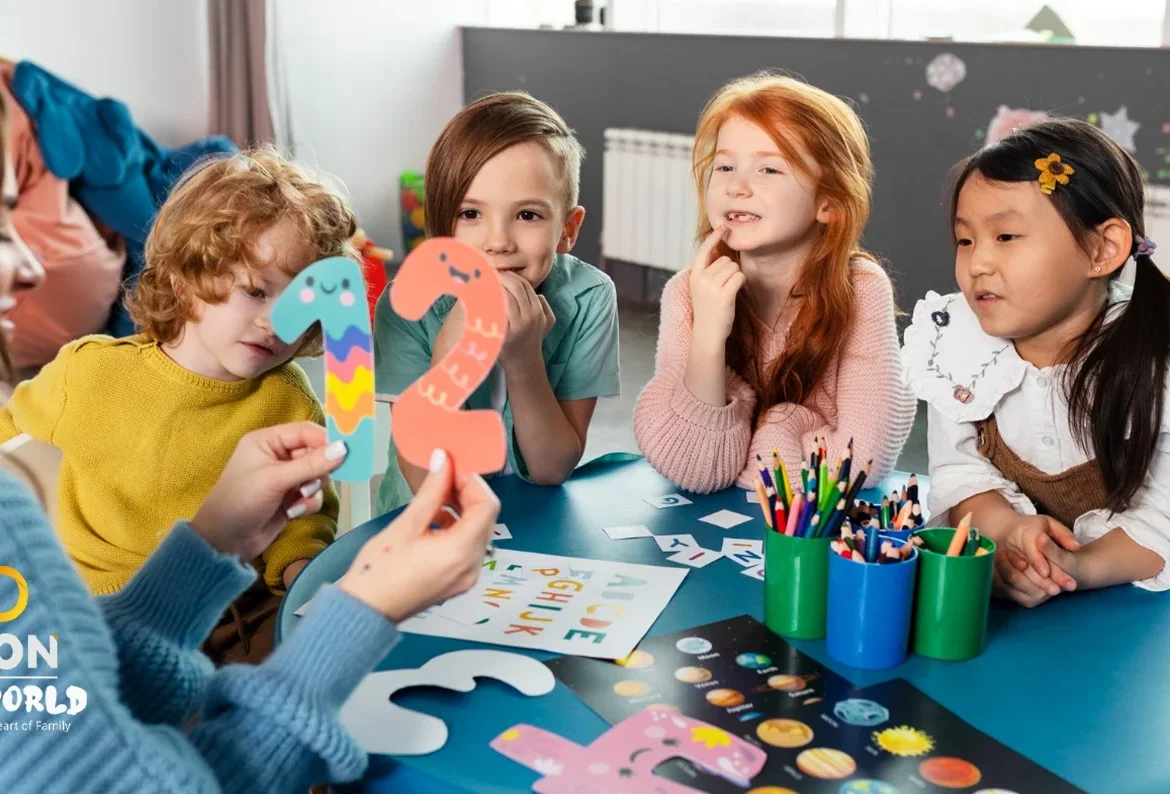In the realm of education, the traditional image of students sitting in rows of desks, absorbing information from textbooks, is gradually evolving. Educators and researchers are increasingly recognizing the importance of play in early childhood education. A play-based curriculum, centered on fostering creativity and imagination, is gaining prominence for its ability to engage young minds in a dynamic and meaningful way. In this blog post, Unison Kinderworld the best Kindergarten School in Pinjore will explore the numerous benefits of a play-based curriculum, emphasizing the crucial role it plays in nurturing creativity and imagination in children.
- Develops Cognitive Skills:
Play is a child’s natural way of exploring the world around them. A play-based curriculum provides opportunities for children to engage in activities that stimulate cognitive development. From building structures with blocks to solving problems in imaginative play scenarios, children enhance their critical thinking and problem-solving skills through play.
- Encourages Social Interaction:
Play-based learning encourages collaboration and social interaction among children. Whether they are working together on a project, negotiating roles in pretend play, or sharing toys, children learn valuable social skills such as communication, cooperation, and conflict resolution. These early social interactions lay the foundation for positive relationships in the future.
- Fosters Creativity and Imagination:
Perhaps the most significant advantage of a play-based curriculum is its ability to unleash and nurture creativity and imagination. Through activities like storytelling, role-playing, and artistic expression, children develop their imaginations, allowing them to explore new ideas, scenarios, and possibilities. This creativity is a crucial skill that extends beyond childhood, influencing problem-solving and innovation in later life.
- Supports Emotional Development:
Play provides a safe space for children to express and understand their emotions. Whether they are acting out different roles in a play scenario or creating art that reflects their feelings, play-based learning helps children develop emotional intelligence. This emotional awareness is vital for building resilience and coping with challenges throughout life.
- Enhances Motor Skills:
Physical play, such as running, jumping, climbing, and manipulating objects, is integral to a play-based curriculum. These activities contribute to the development of gross and fine motor skills. Whether it’s holding a paintbrush, stacking blocks, or navigating a play structure, children refine their motor skills through play.
- Cultivates a Love for Learning:
A play-based approach makes learning enjoyable and exciting, cultivating a positive attitude toward education. When children find learning fun, they become more motivated and engaged, setting the stage for a lifelong love of learning. This enthusiasm creates a strong foundation for academic success in the future.
Conclusion:
Unison Kinderworld the best Kindergarten School in Pinjore, recognizes that a play-based curriculum is a powerful tool for nurturing creativity and imagination in young learners. By providing a rich and stimulating environment that encourages exploration, collaboration, and self-expression, educators can lay the groundwork for well-rounded individuals who approach challenges with curiosity and ingenuity. As we continue to recognize the importance of play in early childhood education, we pave the way for a generation that embraces learning as a joyful and imaginative journey.


